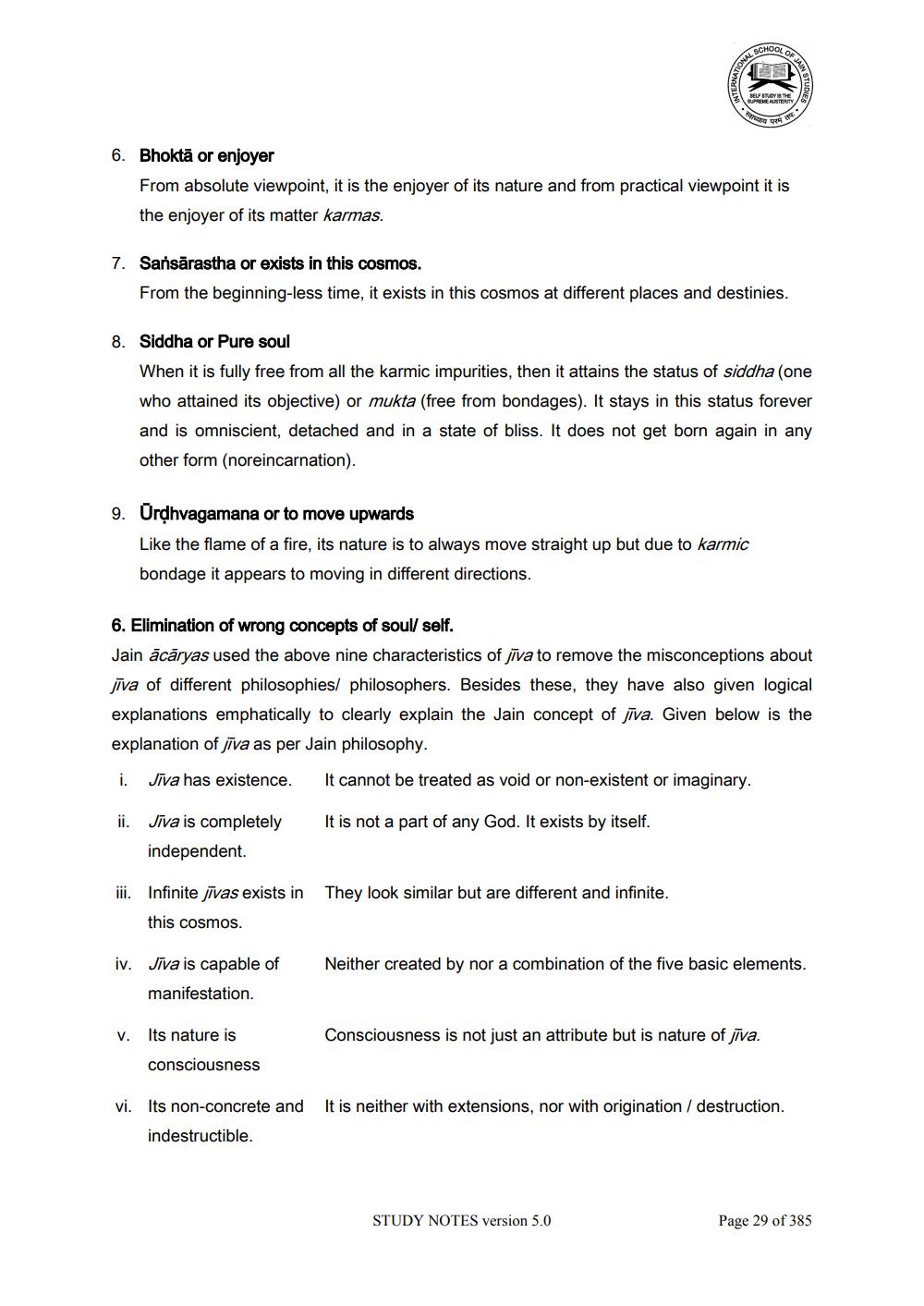________________
6. Bhoktā or enjoyer
From absolute viewpoint, it is the enjoyer of its nature and from practical viewpoint it is the enjoyer of its matter karmas.
ii. Jīva is completely independent.
INTERNATION
7. Sansarastha or exists in this cosmos.
From the beginning-less time, it exists in this cosmos at different places and destinies.
9. Ordhvagamana or to move upwards
Like the flame of a fire, its nature is to always move straight up but due to karmic bondage it appears to moving in different directions.
iii. Infinite jīvas exists in They look similar but are different and infinite.
this cosmos.
iv. Jīva is capable of manifestation.
SCHOOL
8. Siddha or Pure soul
When it is fully free from all the karmic impurities, then it attains the status of siddha (one who attained its objective) or mukta (free from bondages). It stays in this status forever and is omniscient, detached and in a state of bliss. It does not get born again in any other form (noreincarnation).
v. Its nature is
SELF STUDY IS THE SUPREME AUSTERITY
consciousness
स्वाध्याय परम तप
6. Elimination of wrong concepts of soul/ self.
Jain ācāryas used the above nine characteristics of jīva to remove the misconceptions about jiva of different philosophies/ philosophers. Besides these, they have also given logical explanations emphatically to clearly explain the Jain concept of iva. Given below is the explanation of iva as per Jain philosophy.
i. Jīva has existence.
It cannot be treated as void or non-existent or imaginary.
It is not a part of any God. It exists by itself.
OF
STUDY NOTES version 5.0
Consciousness is not just an attribute but is nature of jīva.
STUDIES 46
Neither created by nor a combination of the five basic elements.
vi. Its non-concrete and It is neither with extensions, nor with origination / destruction.
indestructible.
Page 29 of 385




